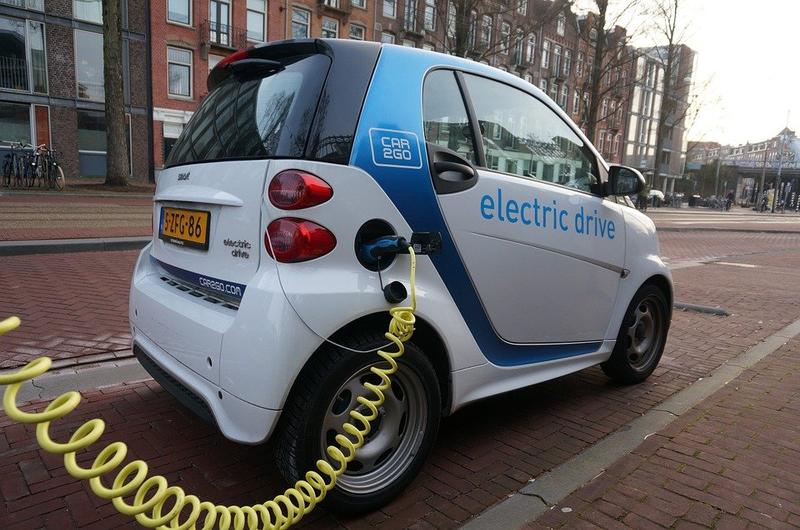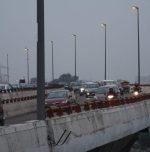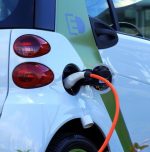Government plans 100% e-vehicles by 2030

The annual convention of the Society of Indian Automobile Manufacturers (or SIAM) has just been held for 2017. This year, the members of the SIAM discussed sustainable growth initiatives for the automobile sector, including initiatives for cleaner Indian roads.
Nitin Gadkari, the Union Road Transport Minister, said that vehicles running on petroleum and diesel gasoline will soon need to be pushed aside, and they will be replaced by vehicles running on more environmentally friendly fuel variants, such as CNG (Compressed Natural Gas), biofuel, and ethanol.
Electrically-run vehicles will be making their way in as well. In fact, the initial replacement of petroleum and diesel vehicles is part of a larger plan of the Indian government to only have e-vehicles in India by 2030.
Since the government hopes that this goal will be reached within thirteen years, Gadkari advised the automobile industry to innovate, research, and develop new environmentally friendly technologies. He stated that if they do not work on this in due time, they will be overtaken by the inevitable policy change.
Additionally, the government is planning to create a platform to use two-wheelers as taxis, which will reduce the number of cars on the roads. The government’s plan to make Indian all vehicles electric by 2030 and reach zero emissions by 2040 is composed of three steps, and they are as follows.
Firstly, the government is planning to buy 10,000 e-cars for the national capital region within the next six or eight months. This is a part of the government’s initial step to have 1,000,000 e-three-wheelers and 10,000 e-city buses on Indian roads by 2019. The government will begin to invite bids for the three-wheelers and the buses around the end of this year.
Secondly, the government will push for this to be the “LED moment” for Indian transport, referring to when 700,000,000 Indian street lamps were replaced with energy-saving LED lights. Steps have already been made in this direction, such as Nagpur’s new fleet of 200 e-vehicles.
Thirdly, the government will be setting up industries to produce 2nd generation ethanol.
This will fill the supply-demand gap for ethanol, a non-polluting and cost-effective fuel which can be an excellent replacement for petroleum products.
Image by Marilyn Murphy from Pixabay (Free for commercial use)
You may also like
Image Reference: https://pixabay.com/photos/amsterdam-smartcar-electric-car-eco-916561/
Recent Posts
- Milk adulteration in India: Simple home tests to stay safeMilk is a daily staple in Indian households. However, concerns over adulteration continue to rise. Reports suggest that nearly 68.7 per cent of milk in India fails to meet safety…
- Unregistered will still hold legal power in IndiaIndian succession laws clearly state that registration is not compulsory for a will to be valid.
- DAC approves 114 Rafale Jets in major defence boostThe Defence Acquisition Council, headed by Rajnath Singh, approved the purchase of 114 Dassault Rafale jets, boosting the Indian Air Force’s combat strength. The deal, featuring up to 50% indigenous content under ‘Make in India’, comes ahead of Emmanuel Macron’s visit, highlighting growing strategic ties.
- Milk adulteration in India: Simple home tests to stay safe
What’s new at WeRIndia.com
News from 700+ sources
-
You helped fraudsters in $9B scam, its on tape’: Minnesota AG grilled at Somali fraud hearing
-
LIVE | S Jaishankar participates in a discussion titled Navigating uncertainty | MSC 2026 in Munich
-
Quote of the Day by Zeno: ‘Better to trip with the feet than with the tongue’. How does this thought teaches us self-control and emotional intelligence?
-
Italy pledges deeper cooperation at second Italy-Africa Summit
-
Useless scenes, too slow: Fans slam Meri Zindagi Hai Tu makers
-
T20 World Cup: Will India shake hands with Pakistan on Sunday? Suryakumar Yadav says wait and watch
-
WeRIndia – A News Aggregator
Visit werindia.com for all types of National | Business | World | Politics | Entertainment | Health related news and much more..









Leave a Reply